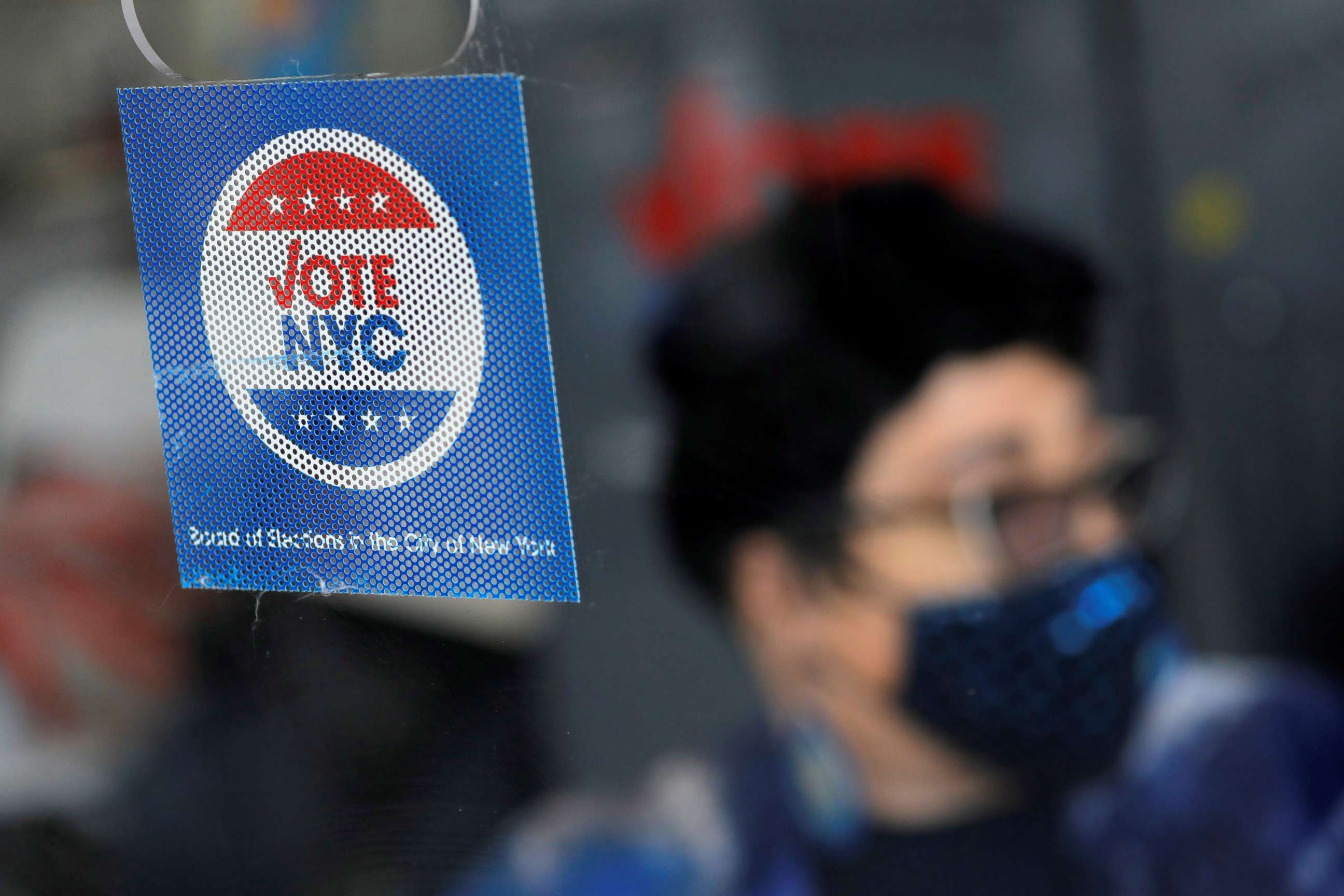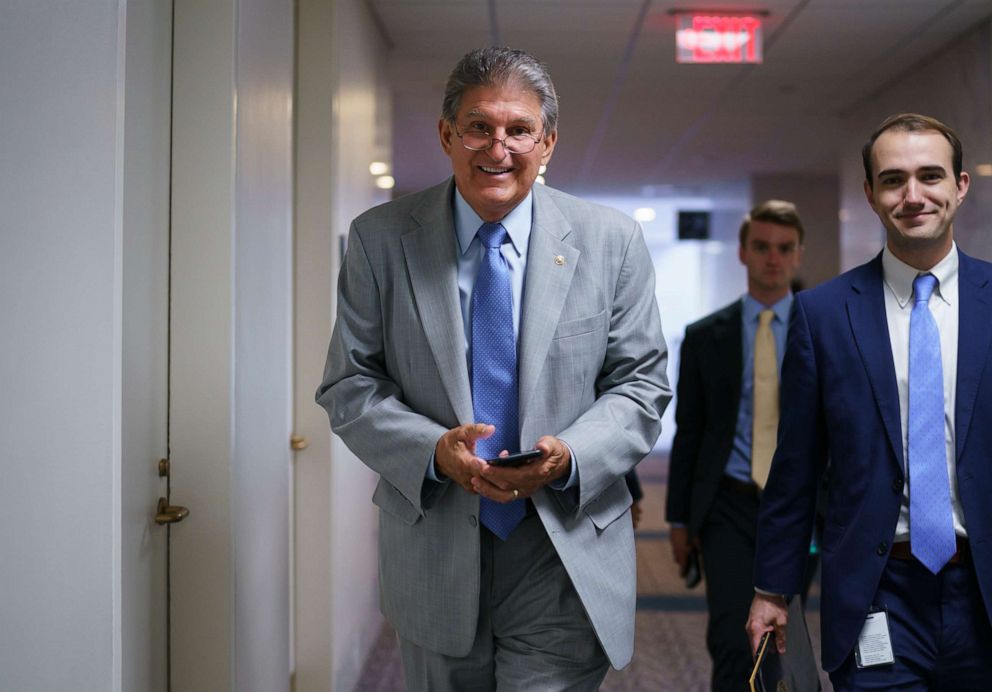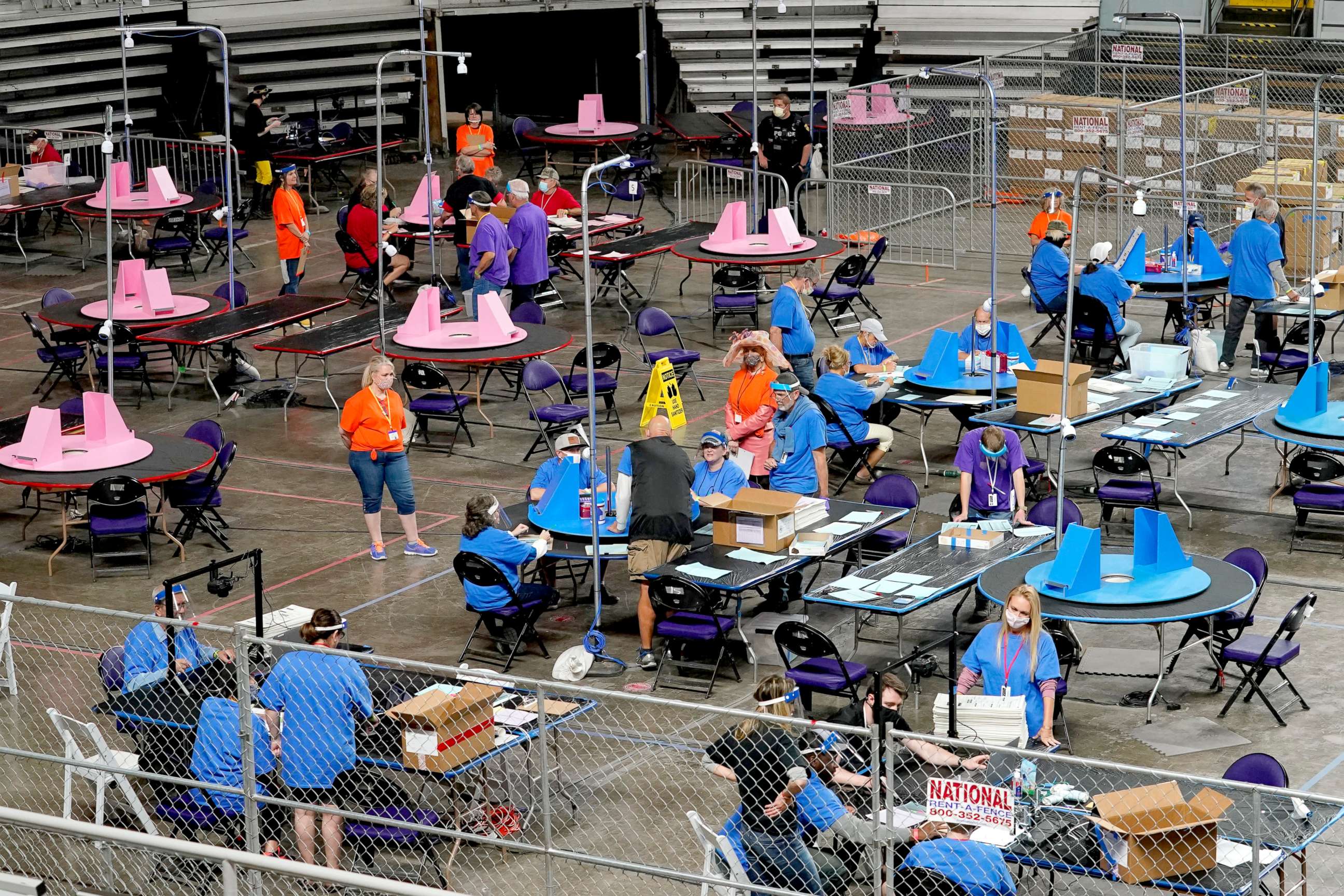Progressives brace for reality check in NYC mayor's race: The Note
It's upended expectations about how a race to run NYC would play out in 2021.
The TAKE with Rick Klein
It's classic New York -- a grand argument about who the real New Yorker is, with a diverse field of Democrats playing out grudges and uneasy alliances in the run-up to Tuesday's primary day.
Already, New York City's mayoral race has upended expectations about how a race to run the nation's largest city would play out in 2021. The city's liberal leanings have run into the realities of a crime wave and economic uncertainties, all amid a scattered campaign made messier by the city's first use of ranked-choice voting.
A year after "defund the police" became something of a progressive rallying cry, the front-runner for mayor is Eric Adams, a retired NYPD officer and Brooklyn borough president who is resisting calls to cut the police budget.

Adams, who is Black, has also scrambled the politics of racial identity through the race's closing days, accusing his opponents of voter-suppression tactics. That came after a novel alliance was formed between two other leading contenders, Kathryn Garcia and Andrew Yang, and a late play by progressives to boost the candidacy of Maya Wiley, who is aiming to become the first Black woman to run New York.
New York is Democratic enough these days that the winner of the primary is virtually assured of winning the general election this fall. But getting a nominee is going to require a dose of something New Yorkers aren't particularly known for: patience.
This marks the biggest experiment with ranked-choice voting in the nation to date. Local officials said it could take weeks to determine a winner, because of early and mail-in votes and the novelty of multiple rounds of redistributing votes.
The race has proven far more complicated for Democrats to sort out in practice than it may have seemed on paper. It's not over yet.
The RUNDOWN with Averi Harper
Advocates of the "For the People Act" are bracing for defeat in Tuesday's expected procedural vote in the Senate on the sweeping voting reform legislation.
Sen. Joe Manchin, the moderate Democrat from West Virginia who previously voiced opposition to the legislation, has proposed several tweaks. Those changes include early voting expansions, banning partisan gerrymandering, making Election Day a federal holiday and mandating voter identification -- which could be interpreted as an olive branch to Republicans.

While voter ID has previously been a non-starter for Democrats, support for Manchin's proposal has gained traction among Democrats. It has even garnered the approval of Fair Fight's Stacey Abrams. Additionally, according to a Monmouth University poll, 80% of Americans say they support requiring voters to show a photo ID to cast a ballot.
Despite Manchin's suggestions, however, Republican opposition is staunch.
On Monday, Senate Minority Leader Mitch McConnell called the legislation "nakedly partisan" and said concerns about Republican-led efforts to pass restrictive voting legislation in states across the country are a "concocted crisis."
While it is expected that every Republican will vote against starting debate on the revised legislation and it remains to be seen if Democrats will present a united front, Senate Majority Leader Chuck Schumer, D-N.Y., said even if it fails, as expected, it will show Americans that congressional Republicans are actively making it harder for people to vote.
The TIP with Alisa Wiersema
With the fight over voting reform playing out on Capitol Hill, some state Republicans continue to lean into formal reexaminations of last fall's election results in several battlegrounds.
Arizona continues to be in the political spotlight for its so-called "audit" of Maricopa County's 2020 general election ballots, and the state Senate's contractors are expected to be finished reviewing ballots by Thursday.

Meanwhile in Georgia, a case alleging that counterfeit absentee ballots were counted in the November election lives on after a Superior Court judge declined to issue an immediate ruling before ending a hearing on the matter Monday morning. Attorneys representing Fulton County reiterated that the case should be dismissed, citing no proof of election fraud, while plaintiffs continued to air skepticism regarding Georgia's manual recount and November audit. No evidence of fraud was found in either process.
Despite similar past election examinations in Pennsylvania that garnered no proof of election fraud, state Sen. David Argall reiterated his support of pursuing a similar process to the "audit" in Arizona in a recent interview with Spotlight PA. The comments came just days after former President Donald Trump called out Argall and state Senate President Pro Tempore Jake Corman in a statement that asked, "Are they stupid, corrupt, or naive?"
ONE MORE THING
Outside of New York City, it might seem like its Democratic mayoral primary has gotten an outsized amount of media coverage. But the complex politics there make Tuesday's election one of the most intriguing races of the year. The city is a stark reminder that "heavily Democratic" does not necessarily equal "far left." But it's too facile to just say it's progressives versus moderates in New York City -- there are far more divisions at play. The city's politics may share the same contours that have defined so many Democratic primaries nationwide, but its racial diversity, parochial neighborhoods and sheer number of Democratic voters -- each with his or her own cross-cutting identities -- expose fissures within fissures. To illustrate this, FiveThirtyEight redrew New York City's five boroughs into five political regions based on the results of four recent Democratic primaries. https://53eig.ht/3gDt3rA
THE PLAYLIST
ABC News' "Start Here" podcast. Tuesday morning's episode features ABC News' Anne Flaherty, who breaks down the data on young people and vaccinations. ESPN's Jay Williams talks about the Supreme Court ruling on NCAA student-athletes. And, New York campaign finance official Eric Friedman explains how ranked-choice voting could impact the New York City mayoral primary Tuesday. http://apple.co/2HPocUL
WHAT YOU NEED TO KNOW TODAY
Download the ABC News app and select "The Note" as an item of interest to receive the day's sharpest political analysis.
The Note is a daily ABC News feature that highlights the key political moments of the day ahead. Please check back tomorrow for the latest.




